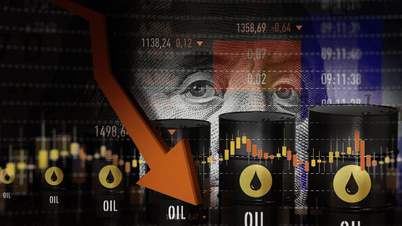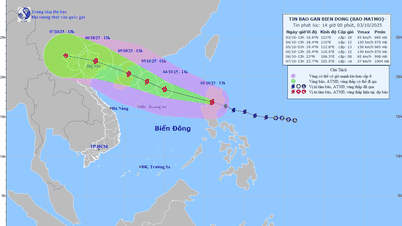
At the end of the session, Brent crude oil price in the North Sea fell 1.24 USD, equivalent to 1.9%, to 64.11 USD/barrel, the lowest level since June 2. US light sweet crude oil price (WTI) fell 1.30 USD, or 2.1%, to close the session at 60.48 USD/barrel, the lowest level since May 30.
OPEC+ may agree to raise oil output by up to 500,000 barrels per day in November, three times the increase in October, as Saudi Arabia seeks to regain market share, three sources familiar with the matter said.
In a report on Thursday, JPMorgan analysts predicted the oil market is now heading for a significant surplus in the fourth quarter of 2025 and into next year. The expected increase in OPEC+ supply, coupled with a slowdown in global crude refining capacity due to maintenance and seasonal demand declines in the coming months, will accelerate the buildup in oil inventories, JPMorgan analysts said.
The US Energy Information Administration (EIA) recently said that US crude oil, gasoline and distillate inventories increased last week due to refining activities and weakened demand.
Concerns about oversupply are compounded by signs of weak demand, PVM Energy analysts said, noting that while demand forecasts vary widely, this year’s figure has been revised down by an average of 150,000 barrels a day between January and September.
However, the decline in oil prices has been somewhat limited by developments related to the Russia-Ukraine conflict. Recently, finance ministers of the Group of Seven (G7) leading industrialized countries said they will take steps to increase pressure on Russia by targeting those who continue to increase purchases of Russian oil.
In addition, two US officials revealed to Reuters that the US will provide Ukraine with intelligence to carry out long-range missile attacks on Russia's energy infrastructure, confirming information previously published in the Wall Street Journal.
This would make it easier for Ukraine to attack refineries, pipelines and other infrastructure to deprive Russia of revenue and oil, the Wall Street Journal said.
UBS commodities analyst Giovanni Staunovo said there were some concerns about a possible disruption to Russian oil supplies, but added that as long as there was no real disruption, the impact on oil prices would likely be minimal. Traders said that demand from China, the world's largest crude importer, had also helped limit the decline in oil prices.
Source: https://baotintuc.vn/thi-truong-tien-te/gia-dau-cham-muc-thap-nhat-4-thang-do-lo-ngai-du-cung-20251003071519019.htm



![[Photo] Prime Minister Pham Minh Chinh chairs meeting to deploy overcoming consequences of storm No. 10](https://vphoto.vietnam.vn/thumb/1200x675/vietnam/resource/IMAGE/2025/10/3/544f420dcc844463898fcbef46247d16)































![[Photo] Binh Trieu 1 Bridge has been completed, raised by 1.1m, and will open to traffic at the end of November.](https://vphoto.vietnam.vn/thumb/1200x675/vietnam/resource/IMAGE/2025/10/2/a6549e2a3b5848a1ba76a1ded6141fae)






































































Comment (0)